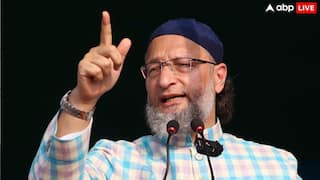Pompeo Claim On India-Pakistan N-War Threat Just Another Example Of US Playing Nuclear Constable In South Asia
Though US officials take pride in playing a constabulary role in the so-called nuclear flashpoint, i.e. South Asia, the US must apportion the blame for letting Pakistan acquire the dirty bomb.

Former US secretary of state Mike Pompeo has dropped a bombshell on the observers of tense relations between India and Pakistan by claiming that his late night diplomatic maneuvers resulted in preventing the two South Asian neighbours from escalating the nuclear brinkmanship. However, this is not a first. Earlier also, senior US officials had on at least four occasions taken credit for preventing the two nuclear powers from launching attacks on each other. Two of these developments happened in the nineties when the two nations were not actually officially declared nuclear weapon states. Pakistan was then an American frontline state for fighting the Soviet forces in Afghanistan. Hence, the then US geopolitical agenda demanded that it closed its eyes on the nuclear programme of Pakistan.
As revealed in his latest book, 'Never give an inch - Fighting for an America I love', Pompeo received a late night telephone call from India's then external affairs minister Sushma Swaraj to warn about the impending nuclear attack on India by Pakistan, after the February 19, 2019 Balakot surgical strike on a terrorist training camp of Jaish-e-Muhammad. Pompeo said he was deep in slumber but sprung into action and dialled Rawalpindi because the "most powerful person of Pakistan lives there".
Though US officials take pride in playing a constabulary role in the so-called nuclear flashpoint i.e. South Asia, the US must apportion the blame for letting Pakistan acquire the dirty bomb, as the US did not want to antagonise the Islamic nation that was then a partner in its fight against Soviet forces in Afghanistan. The US administration was then supporting the anti-communist Islamic forces in Kabul by providing all sorts of modern weaponry like Stinger missiles to the Mujahideen. Pakistan availed this bonhomie with the US by stealthily acquiring components of the nuclear bomb, along with technical support from China and facilitation of the Chinese nuclear testing site of Lop Nor.
The US administration then ignored the saner voices from the US Senate like Senator Larry Pressler, who pressured the US administration to cancel the US$3.2 billion military aid to fight against then communist regime in Afghanistan. Pressler even got an amendment in the US aid legislation to Pakistan passed, which is now famous by his name, requiring the US to certify that Pakistan is not making nuclear bomb. But the US administration, with a very short vision, ignored such warning signals from within and continued arming the Pakistani military with all sorts of weapon systems and platforms like F16 fighters armed with Sidewinder missiles, which were actually used against India in the aftermath of Indian air strike on Balakot terrorist camp. In fact, these US-supplied weapons, used by Pakistan, raised the possibility of nuclear war in South Asia.
ALSO READ | Jaishankar On Pakistan: Pandavas Could Not Choose Their Relatives, We Can't Choose Our Neighbours
India-Pakistan Tension And Nuclear Threat
Way back in 1987, at the height of the Cold War, the US administration is reported to have played a key role in preventing the two warring neighbours from going to nuclear war, over Jammu and Kashmir. Pakistan was then widely reported to have a bomb in the basement as told to journalist Kuldeep Nayar by the then most revered Pakistani nuclear scientist AQ Khan.
In 1987, India had amassed more than 60,000 troops in the Western sector adjoining Pakistan, for conducting wargames called Operation Brasstacks, which was misconstrued by the Pakistani army as a ruse to attack the country. This resulted in a military showdown between the two nations due to which there were wide speculations of the culmination of the conflict in a nuclear war. The Indian Army then claimed that the war games were intended to “test and experiment new concepts of warfare”.
Three years later, in 1990, tension flared up along the India-Pakistan border once again when the Indian Army moved armed battalions equipped with infantry combat vehicles, battle tanks and field guns, in response to the increased activities of terror groups near Punjab and Kashmir borders. Then senior US official Robert Gates, the national deputy security advisor, was reported to have played a role in defusing the heightened military tension.
As reported by Pakistani daily ‘The Dawn’ on August 12, 1990, the then Pakistani army chief General Aslam Beg had told his corps commanders that 1 lakh invading Indian troops had been deployed within 50 miles of the Rajasthan border. Gen Beg was also reported to have warned that there was a serious threat posed by the Indian Army. The General also said the Pakistani army was also put on high alert. The Pakistani army started corps-level exercise nicknamed Operation Zerb-e-Momin, under which the Pakistani army deployed three field corps, two armored brigades, and two artillery divisions, along with air-defence division. Zerb-e-Momin was reported to be the largest ever exercise by the Pakistani army. This muscle flexing by the two armies on the Rajasthan border alerted the mandarins in Foggy Bottom, who made visits to New Delhi and Islamabad to calm down the tension.
The details of these efforts were later revealed by famous journalist Seymour Hersh on March 29, 1993, in the Newyorker magazine. Hersh quoted in his article the then CIA deputy director Richard Kerr as saying: "...it was the most dangerous nuclear situation we have ever faced since I have been in the US Government . It may be as close as we have come to a nuclear exchange. It was far more frightening than the Cuban missile crisis.”
Nine years later, in 1999, the Pakistani army, under the command of General Pervez Musharraf, sent its soldiers disguised as militants to the Kargil heights on the Line of Control in the divided Jammu and Kashmir. During the Kargil conflict also, there was a lot of sabre-rattling on both the sides. A scared US administration, under President Bill Clinton, played a mediatory role and invited the then India prime minister Atal Behari Vajpayee and his Pakistani counterpart Nawaz Sharif for talks. While Vajpayee refused to go to Washington, Sharif reached White House, where he was bluntly told to withdraw his soldiers from Kargil. Showing pragmatism, Vajpayee refused to allow the Indian Army to cross the LoC and limit all the operations within the Indian boundaries. During the May-July 1999 Kargil intrusion by the Pakistani army, there were huge international concerns due to the possibility of escalation between the two nuclear-powered neighbours who had just a year ago, in May 1998, conducted multiple nuclear tests.
Continued cross-border terrorist activities from Pakistan keeps both the countries on the boil. Any big terror attack launched from across the border has full potential to escalate into a full-fledged war, ultimately resulting in nuclear conflagration. This will have serious international repercussions. Self-appointed guardians of the world must give a serious thought over this.
The author is a senior journalist and strategic affairs analyst.
[Disclaimer: The opinions, beliefs, and views expressed by the various authors and forum participants on this website are personal.]






































